

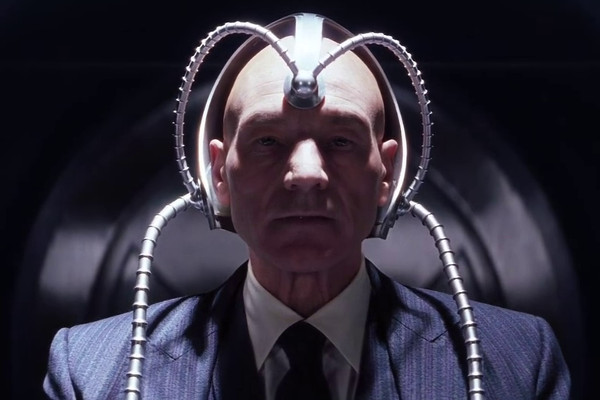
Article originally published June 2019, updated to include The New Mutants
The series is available on BluRay from Amazon, including the brand new release of The New Mutants. In the meantime, please join me in a look at the highs and lows of the franchise, ahead of August's release of the final Fox X-Men film, New Mutants...
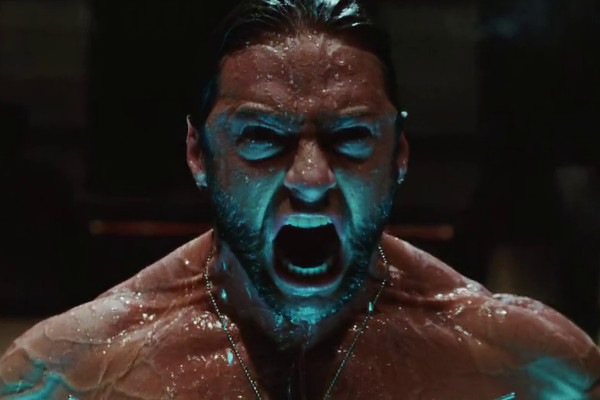
It's somewhat hard to fathom how Wolverine is regarded so badly. Although it is, in fairness, as dumb as the proverbial "box of rocks", the brief running time means that it zooms along nicely and doesn't outstay its welcome.
Yet even for a comic book movie in the worst definition of that term, then dialogue is pretty horrible throughout and, just over a decade old, the special effects already look hugely dated, not least the green screen on any of the driving scenes.
There's also the issue that it contradicts several other X-Men movies, but this is not unique to this one entry, and the list of poor continuity and timeline inaccuracies that litter the entire series are too numerous to count. Mainstream audiences would have been unfamiliar with Deadpool at the time, so it makes little odds that "the merc with the mouth" ends the film with... no mouth. The scene was humorously lampooned in Deadpool 2, where Ryan Reynolds had finally got to bring his version of the character to life.
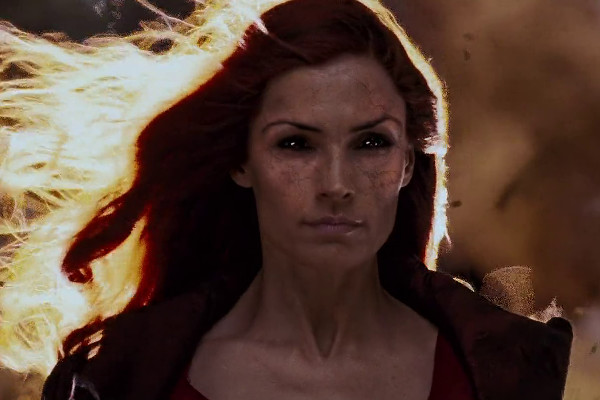
Critically, if not commercially, The Last Stand marked such a downward turn in the franchise that it took five years to get it back on track. It should be noted, however, that while First Class introduced a new cast as the "younger" X-Men, and reignited the franchise, it wasn't the commercial hit that this one was, taking over $100m less at the box office than The Last Stand's $459m haul, not even taking into account inflation.
The most expensive film of the series with a $210m budget, it rarely shows on screen, a cheap-looking movie with probably the franchise's biggest-ever goof, as Magneto takes a bridge through the air, as the sky around him goes from day to night.
Always dumb and with some bad dialogue, this is nevertheless an entry that, like Wolverine: Origins, is always watchable, if never particularly any good. Ian McKellen delivers his hammiest turn as Magneto, and someone somewhere thought casting Vinnie Jones as the Juggernaut was a good idea.
Allegations against certain parties, particularly in the wake of the #MeToo movement, have been avoided as part of the discussion of these films, both to keep the topic light and also for possible legal reasons. However, it is notable that Ellen Page is on record as saying she was mistreated by director Brett Ratner during this particular entry, even posting a lengthy Facebook Post on the topic. It's a sour note that makes the objectification of women in the film have an unsettling edge.
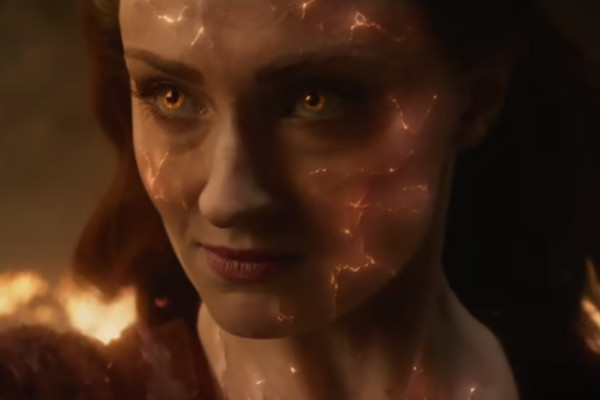
Very few films have reached cinemas "dead on arrival" quite as much as Dark Phoenix. A film so expected to fail that staff at my local Odeon were wearing T-shirts with the names of upcoming "blockbusters" written on them, omitting Dark Phoenix but keeping titles like The Secret Life of Pets 2.
Dark Phoenix not only had to follow Apocalypse, a largely unpopular entry in the franchise, but also had to get audiences interested in a plot they'd already paid to see: the "Dark Phoenix" saga, which was already done and poorly received in The Last Stand, 13 years earlier. Having a recreation of the same plot in the same franchise (albeit with time travel having "erased" the first occurrence) is almost unheard of... having said plot being written and directed by one of the co-writers of the first, unpopular attempt is almost anathema.
Lastly, there was the growing desire on behalf of many fans to see the characters transfer across to Marvel since Disney officially bought Fox in 2019. Quite why audiences want to see the X-Men turned into quip-a-matic, barely distinguishable characters is puzzling, but then the Fox vs. Marvel struggle is very much a "brand identity", where the average Marvel film had been doing over $400m a film greater than the average Fox X-Men movie.
While this seems like a very childish motivation in purchasing a cinema ticket, it's not gone unnoticed, even in the movies themselves, with Once Upon A Deadpool having Fred Savage note that Marvel characters licensed by Fox are "like if the Beatles were produced by Nickelback... it's music, but it sucks." In amongst all this, it would scarcely matter if Dark Phoenix (released outside the States as X-Men: Dark Phoenix) were a decent film or not... it was one that never had a chance even before it was released. Perhaps some small solace is the realisation that, while not quite deserving to be a box-office bomb, it is, at best, quite mediocre. Characters are vastly underwritten and performances are poor, with bored-looking actors using ham in the place of genuine enthusiasm.
Jennifer Lawrence has critics of her performances in X-Men films, claiming she's phoning in her role, but I've never quite understood that notion... except for here, where she makes a glorified cameo with little care. The Lawrence problem leaves a huge hole at the centre of the film, because we're suddenly left with characters that haven't been given time to develop, or the acting talent to flesh out what little characterisation there is. Following films that were unnaturally Mystique-centric, we're left with a bunch of characters that we haven't had time to get to know or care about, and, in the case of ones we do - Evan Peters's Quicksilver - they're given short shrift in the screenplay.
Having a film centered around Jean Grey's dark side can't really resonate with audiences, as throughout the entire 19-year run of the films, audiences have barely had chance to get to know her, and when they did get to know her, just a little bit, it was as Famke Janssen. There's no opportunity to invest in a character's fate if said character is a virtual stranger, or, let's be honest, a bit of a plank.
It also could have done with more pacing and cohesion... within 15 minutes of the film starting we've gone from the death of Jean's parents to an outer space mission without time to breathe. It's as if the film wants to get itself over and done with just as much as audiences did. Unusually violent, there's multiple stabbings and bodies being skewered, and, to further question the PG-13 rating, Cyclops drops an F-Bomb... though, considering that's the sole interesting thing Cyclops has been given to do in eight movies, it's forgivable.
There's a debate to be had about which is the worst Dark Phoenix tale in this franchise, with the suspicion that this one should be lower down as at least The Last Stand was more fun, though I've yet to pluck up the courage to sit through it again. However, it's not a bad movie... more just a forgettable and mediocre one. Dark Phoenix never had a chance, but could have let the franchise go out on a high note... instead of confirming that the series has passed its sell-by date.

The longest X-Men movie, Apocalypse's unnecessary 144 minute runtime tells a tale of an underdeveloped new villain, submerged beneath pulpish nonsense. It's not without its plusses... some of the meta humour can amuse, particularly regarding remarks about the third film in a trilogy being weak, and Evan Peters is always good value as Quicksilver. But compared to the previous two X-Men movies in the series, which were genuinely decent films, this is just throwaway fluff in comparison.
Attempts to recreate the depth of previous films are muddled when the nature of the Holocaust is brought up by Oscar Isaac wearing a particularly silly blue face mask. Yet perhaps the most inescapable distraction in this entry is the sheer number of actors putting on accents. This is not unique to Apocalypse, of course – most of the series has been based around a 6'2 Australian taking on the role of a 5'3 Canadian – but here, of the 15 main characters, no less than 10 of them are played by actors putting on a different dialect, with widely variable results.
James McAvoy and Michael Fassbender are seen so often on screen with English accents it's hard to remember that neither actually are English, though Sophie Turner, in particular, seems to struggle to perform a convincing American accent. While talented, she's miscast here, and seems to have been included in the film on the basis of her high-profile role in Game of Thrones. Note how the end of the film sees her unleash the power of the Phoenix Force... before she actually gains said force in the following movie. The X-Men films are notorious for being internally inconsistent, and this might be the worst example.
Ultimately too much of Apocalypse seems made with computer pixels, the actors reactive to green screen rather than any genuine emotion. The film was a bigger hit outside of America than within it, and went on to make over $540m at the box office, but lukewarm critical responses mean that enthusiasm for further films in the series were blunted with cinemagoers.
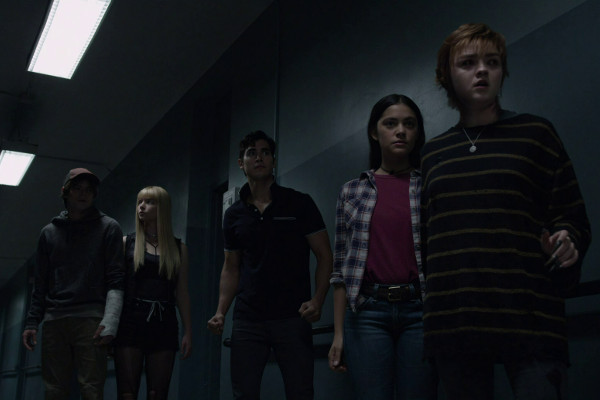
The New Mutants was famously held up for over two years in production delays and Disney's acquisition of Fox, then finally having the misfortune to go out during a global pandemic. Despite this, it seemed to have more general goodwill and grace extended towards it than Dark Phoenix, indicating that audiences were prepared to give it a chance, but just weren't prepared to risk their lives to see it.
November 2020 marks the release on DVD and BluRay of the film, and, presumably, a chance for a wider audience to finally see it. At just 94 minutes, it's the shortest X-Men film from Fox, and, while it does mean it cuts down on some of the bloat and excess of recent entries, it also means that, like the first X-Men movie, which introduced the entire team in just 10 more minutes than this one, it can feel like short-changing the audience, particularly in an age where movies shorter than 100 minutes are often welcome, but fairly rare.
Containing some dark themes for a superhero movie, discussion of female masturbation and child abuse perhaps sit awkwardly with a film that has a climactic CGI fight with a giant magic bear, and there's the definite feeling that the film didn't achieve its full potential, even if that full potential just meant making all five main characters actually likeable. Yet at the same time, it's not exactly a full on failure, either, being more "so-so" than terrible.
The idea of changing characters from how they appear on the page is a contentious issue. Sometimes what works in comic panels won't work on screen, but often it beggars the question: if you didn't like the characters as they were, why did you decide to adapt them in the first place? Putting aside that the obvious answer is "money", this can lead to disputes when a comic reader expects to see characters on screen as, bizarrely as it may seem, looking like they do in the comics.
It seems quite a straightforward point to OCD purists, but can still lead to issues like being accused of discriminating if you suddenly wonder why Johnny Storm became black in the 2015 Fantastic Four movie. The New Mutants has this problem in reverse, as the dark-skinned, mixed-race Brazilian Roberto da Costa gets portrayed by the light-skinned Henry Zaga. This wasn't actually new, as the same thing happened for Roberto's cameo role in Days Of Future Past, where another light-skinned actor played him, though I imagine many - myself included - weren't aware it was supposed to be the same character.
In amongst this white washing and some seriously shaky accents, there's the change of characterisation that leads to Danielle "Dani" Moonstar (Blu Hunt) and Rahne Sinclair (Maisie Williams) having a lesbian relationship. Although I'm not overly familiar with the characters in the comics (Dani reputedly has some scattered hints in certain issues, though these appear to be well-hidden), this does seem to be another retooling of characterisation, as neither were originated as bi or gay, Rahne particularly. This said, at the risk of sounding like a complete pervert, making two comic book characters lesbians is something that will never be objected to here. Well, maybe Aunt May getting it on with Agatha Harkness would be going too far...

A crowdpleaser, the Deadpool films are by some distance the most financially successful of the X-Men movies, with only Days of Future Past coming close. Sadly, it's not due to any great artistic merit, as Deadpool's scatological humour aims for little higher than the lowest (or broadest) common denominator.
All humour is, of course, subjective, but the relentless parade of cheap sex gags, fart jokes and crotch punching begin to grate over the distance of a full-length feature, and the plot resembles a 15-year-old's masturbation fantasy.
Ryan Reynolds is perfectly cast as Deadpool, and the tiresome, relentless chatter from "the merc with the mouth" is kind of the point, but it doesn't make it any easier to sit through. The idea of a post-modern superhero film that breaks the fourth wall isn't actually anything new, with the stylistically similar Kick Ass coming out six years earlier... the idea of a fourth wall breaking film in any genre is even older.
Ultimately, Deadpool is an okay film, and does have some amusing moments, but critical attempts to reclaim it as witty or even especially original are somewhat wide of the mark. Rather than being "anarchic" as some claimed, Deadpool encroaches itself firmly in the mainstream while pretending to cast doubt upon its own, popcorn-selling genesis.
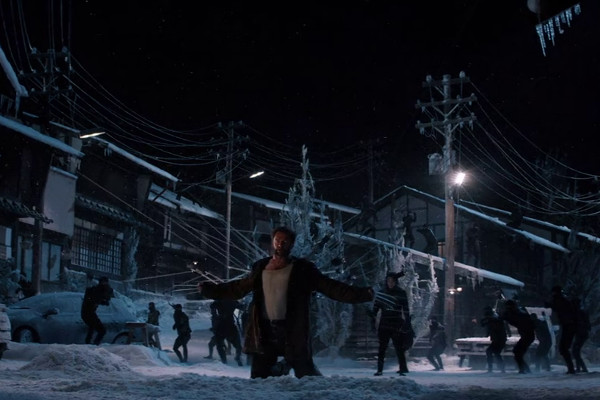
Despite Logan surviving a nuclear blast, having a 300mph fight on a Japanese bullet train and fighting a giant samurai robot, this manages to be one of the more ponderous entries in the series. There's around an hour with Logan's healing factor disabled, which adds some sense of danger absent from the first solo Wolverine tale, but ultimately isn't pushed far enough.
It's enlivened by the extended edition, which takes away the PG-13 restrictions and amps up the language and the violence, giving it an edge it lacked on its theatrical release. Although only of moderate interest, The Wolverine continued the rehabilitation of the series that had begun with First Class in 2011.